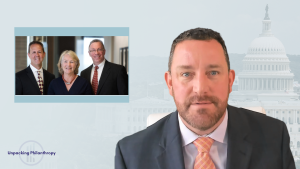In 2014, the National Committee for Responsive Philanthropy (NCRP) and local Minnesota organizations called on the IRS and the Minnesota Attorney General’s office to investigate the “suspicious and potentially illegal behavior” of the Otto Bremer Trust. Organizations urged action after three board members pushed out the foundation’s executive director, named themselves co-CEOs and gave themselves exorbitant salaries.
It took seven years of continued local advocacy and the election of a new state Attorney General to see Brian Lipschultz, Daniel Reardon, and Charlotte Johnson eventually investigated.
After several months’ deliberation, Judge Robert Awsumb has restored some sense of accountability by removing Lipschultz as a trustee. In a decision released late Friday April 29, the judge recognized that “Lipschultz has shown repeatedly that he cannot operate in a purely charitable manner, and has allowed his own personal interests, animosity, enmity, or vindictiveness to impact his decisions and behavior as a trustee of one of the region’s most important charitable institutions.”
Judge Awsumb’s full 103-page decision is available here.
When Selfish Actions Overwhelm the Common Good
At the end of his decision, Judge Awsumb wrote that “There is no room in the charitable world for animosity and vindictiveness to infiltrate or impact the decision-making of a charitable trustee.”
We at NCRP couldn’t agree more.
As I mentioned in a recent episode of Unpacking Philanthropy, “if we want philanthropy to serve the common good and not be highjacked for private purposes, we must have strong oversight – internal oversight with good governance practices, and regulatory oversight by state and federal officials.”
for private purposes, we must have strong oversight – internal oversight with good governance practices, and regulatory oversight by state and federal officials.”
While Judge Awsumb’s decision is a step forward, it is not a total victory for good governance advocates. The judge blocked trustee Daniel Reardon from receiving extra compensation for giving investment advice, but he took no issue with the trustees’ compensation since it is within the limits allowed by the trust documents. Unfortunately, one of NCRP’s biggest concerns was not addressed by Judge Awsumb. The two remaining trustees are still acting as co-CEOs and are still supervising themselves.
Yes, it’s true that this unusual structure is allowed by the trust documents. But just because it’s allowed, doesn’t make it right.
A Story that is Far from Over
Certainly, one chapter of this story has come to an end with the removal of Lipschultz. However, the story is far from over. Questions that remain include:
-
- Will Lipschultz be replaced, and, if so, by whom?
- If he isn’t replaced, the Otto Bremer Trust, now with nearly $2 billion in net assets, will be governed by just two trustees.
- Will the trustees put in place a more traditional structure and hire a CEO or Executive Director to lead the organization, as was the case prior to 2014, or will they continue to function as co-CEOs, accountable only to themselves?
Questions also remain about how the local non-profit and foundation community will react. With all the problems that have come to light from this trial, what will be the actions taken by philanthropy serving organizations like the Minnesota Council on Foundations, Independent Sector, and the Council on Foundations – all of which still count Otto Bremer Trust as a member?
An Important First Step
Nevertheless, NCRP applauds the leadership of Minnesota State Attorney General Keith Ellison for not just investigating the matter, but also choosing to bring the conflict to a public trial.
So often, issues around wealth and money are discussed in quiet, undisclosed meetings behind closed doors. If anything, the trial – and the 103-page decision it produced – was a real education into what can go wrong when a donor’s best intentions for good are overtaken by personal greed and polite obfuscation.
Ellison’s office’s efforts to investigate and remove one of the trustees is a real reminder of the difference state attorney general offices can make in people’s lives.
Bold leadership matters.














































































































































































































































































































































































































Leave a Reply